Nepal – Country & People
Nepal lies the between India & Tibet, its landscapes range from the deep valleys to the dizzying heights of the Himalayas. Nepal has really everything to offer to its visitors: from subtropical jungle to ice-covered Himalayan rocks. The variety of such imposing landscape perfectly mirrors the variety of the cultures inhabiting it. This small-secluded land is populated by many different ethnic groups speaking over 50 languages and dialects.
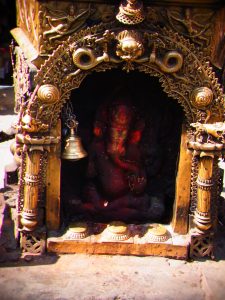
About the religion in the mountains of Nepal
In an enchanting landscape, Hinduism and Buddhism meet and merge with the natural constriction of the mountains. Narrow ravines with roaring rivers roam the sheer hills of the mountain ranges. Natural terraces facing breath-taking heights, tea and rice plantations, rare animal species. Ancient rituals and weekly markets make out this small country a unique place.
The area of Nepal is about half the area of Germany. On this small space, live around 30.Mio. People are a colourful mosaic of cultures, consisting mainly of Indo-Aryan and Tibet-Burmese ethnic groups.
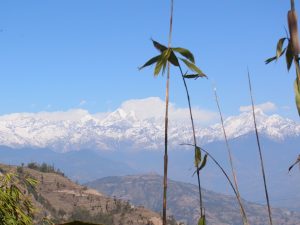
The Nepali roots its social structure in the Hindu/Buddhist religious doctrine. The ancient Nepalese inhabitants, the Mongolian ethnic groups Newari, Sunwar, Tharau; Rai and Limbu still characterize today’s Nepal main population.
About the Tribe Tamang
The Tamang make up 20% of Nepal’s residents and are the largest Tibetan-Mongolian ethnic group in the country. The name Tamang means in Tibetan „horse traders“. There is strong historical evidence that the Tamang came from the north and ran horse trade with the Newar. This is also the reason why they later moved to Nepal.
The Tamang ethnic group (estimated at 350,000 souls) descends from the Lamaists. The majority of the Buddhist Tamang live in the mountains at 1500m- 2500m and sustain their small village community with corn, millet, barley and wheat. Their language is a melting pot of different dialects while their religious rituals are closely related to the Tibetans. Moreover, being Tamang Lamaists and Buddhist they build small monasteries and stupas in their villages for worship reason. The shaman cult also plays an extremely important role and it is part of their culture.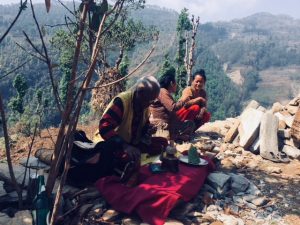
The Tamang villages are in the mountainous region, 8 hours bus ride from Kathmandu. The distance is only 80 to 100 kilometres, but the place is not so easy to reach. This is typical Nepal: every short track turns into a small adventure. The trail leads over one-lane, dusty stone roads that seem to snake their way around the mountains. Pine forests and bright mountain slopes surround the bus moving more and more skyward. The whole trip feels like a wild water ride.
The village of Nangre is located in the Kavre region. Nangre is home to about 100 Tamang, living and working in a typical original Nepalese style. They inhabit the mountain slopes in traditional sweet Nepalese houses, each one with cattle and field. It is loud in the neighbourhood. The District of the Baghmati Zone. Kavre / Kavrepalanchowk is headquartered in the Dhulikhel province. The size of the province is about 1.396 km2, and the natives consist mainly of the ethnic groups of Newars, Brahmins, Chhetris and Tamangs.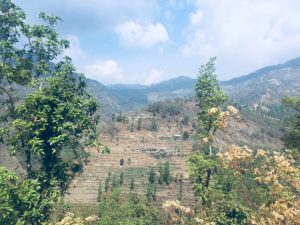
Newari, Tamang and Nepali are the spoken languages. The communication takes place partly over some mountain slopes and by a loud call. Life is quiet here; the noise comes only by the loud screaming and shouting from one mountain slope to another.
The Tamang start their day very early in the morning. Yet at 5 o’clock, they start to feed their cattle, to prepare food and cultivate the fields. Life is calm and regular on the mountains, in great contrast to the noisy city life in Kathmandu. The Tamang are an extremely friendly and helpful people, very attached to their traditions- the families are big and their kinship reaches far.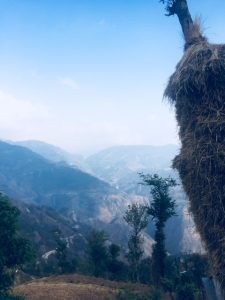
The cultural group is dressed in a typically traditional way, many women wear special nose rings and other golden jewellery. Both men and women dedicate to manual work and use to creatively weave baskets together. Many Tamang women produce excellent rice mats and other useful products for the home and the garden.

